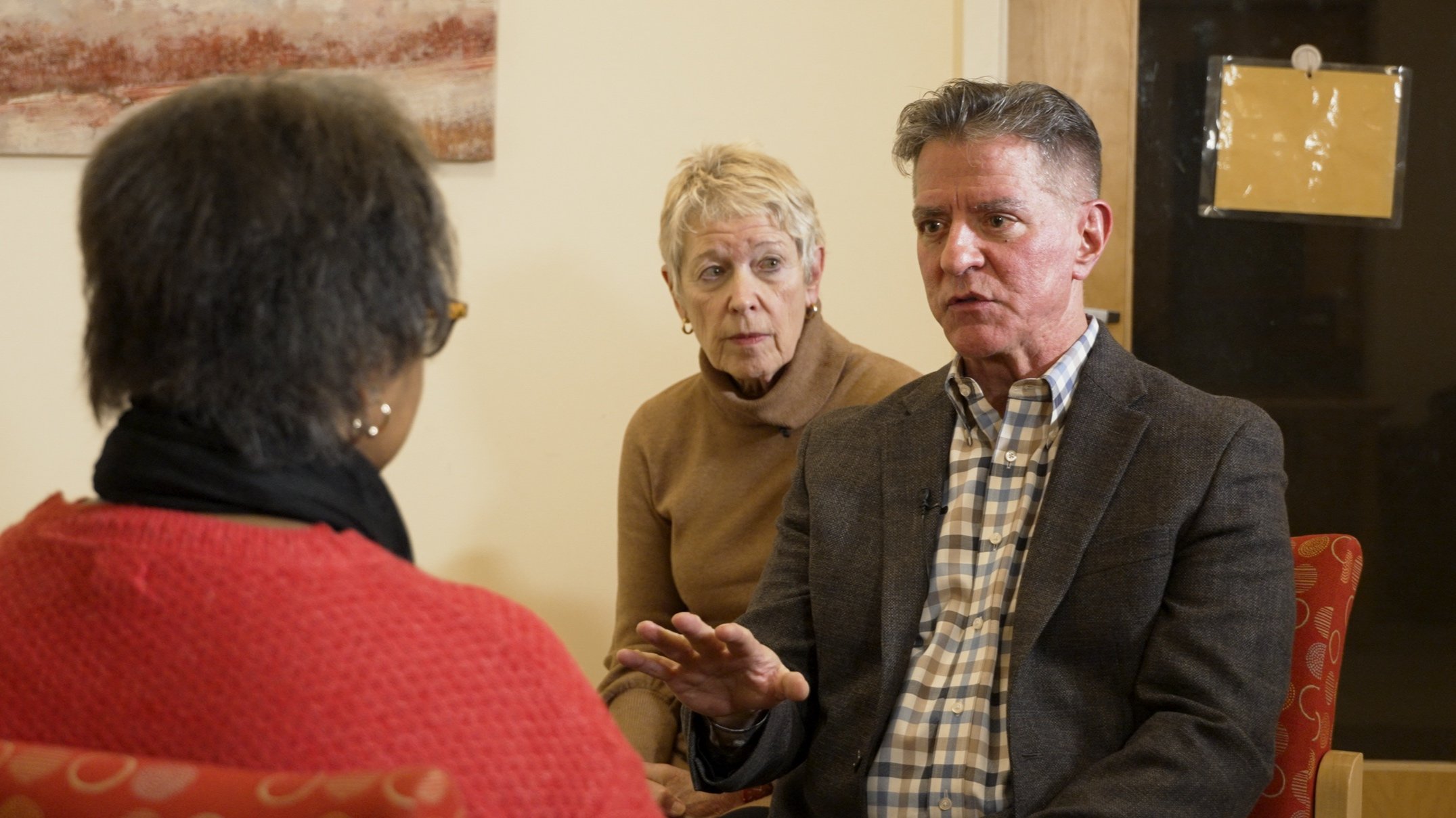What is Real Dialogue?
Real Dialogue has grown from Dialogue Therapy developed by Polly and her late husband, Ed Epstein, in 1983. Real Dialogue is a finely-honed structure for dialogue and inquiry that is used for resolving conflicts between equals in relationships. Real Dialogue allows us to have conflict with respect, use conflict creatively, and speak and listen to others without having to agree or compromise so that a process of inquiry can take place without dehumanizing or devaluing another’s point of view or perspective.
The Skills of Real Dialogue Are:
1. Speaking for Yourself: Take mindful responsibility for the subjective basis of your own impressions, memories, and staying away from stating “objective facts” and/or making “we” or “you” statements.
2. Listening Mindfully: Be certain you can step into the other person’s shoes and see/hear/feel that person’s statement/message before replying to it.
3. Remaining Curious: Recognize and remain interested in what is emerging between you and the other because you know that you need both sides of an opposition in order to reach any lasting solution to problems.
These steps lead to the precious gift of being able to sit and talk with someone who is profoundly in disagreement with you.
To become a certified Real Dialogue Specialist or Dialogue Therapist please contact us or learn more here.
The Center for Real Dialogue is a non-profit organization that provides evidence-based practices, education and training in the skills and methods of Real Dialogue through free podcasts and other public programs, fee-based affordable training for individuals and groups, and continuing education for mental health professionals in Dialogue Therapy.
“The question about what Real Dialogue is...could be one of the most important questions in the world.””
Download the booklets on Real Dialogue written and illustrated by Polly Young-Eisendrath, Ph.D.
20 pages • In Real Dialogue, "Speaking for Yourself" involves much more than using I-statements. It is the ability to recognize, with modesty, that the ways you hear, see, and feel others is subjective. In times of conflict and emotional threat, you set your intention to speak only for yourself and not to argue about “the truth” or what “really happened." This little primer will help mindfully develop those capacities.
“Drs. Pieniadz and Young-Eisendrath are on the pioneering edge with their elegant and highly effective model of Dialogue Therapy and Real Dialogue. As someone who has worked for years to help heal the broken-hearted, and offer hope to those who steadfastly believe in love despite their many bumps and bruises along the way, I’m thrilled to discover this graceful, heartfelt, compellingly simple, yet brilliantly deep work to awaken our ability to grow greater levels of compassion and care between us. These two superb luminaries are my new relationship gurus.”
”
“This ambitious, beautifully written text represents decades of accumulated clinical wisdom. Integrating feminism, Buddhism, psychoanalysis, and empirical scholarship, the authors show how to help antagonistic parties to listen respectfully, grow in self-knowledge and autonomy, and appreciate the equal humanity of the other. Their work is both inspiring and quintessentially practical. I recommend this book to all therapists who work with couples as well as to professionals in the fields of coaching, consulting, and conflict resolution. ”




